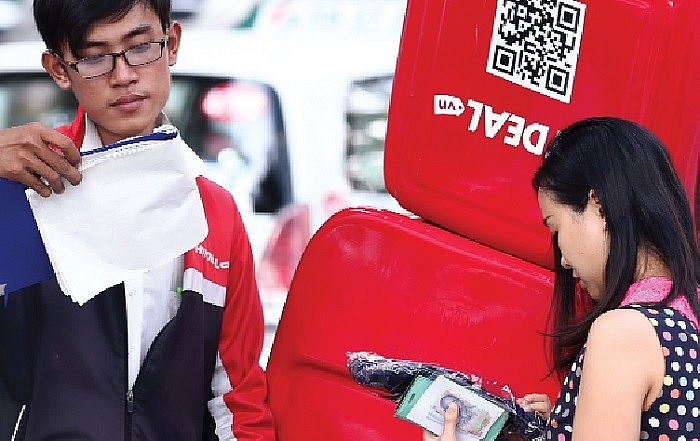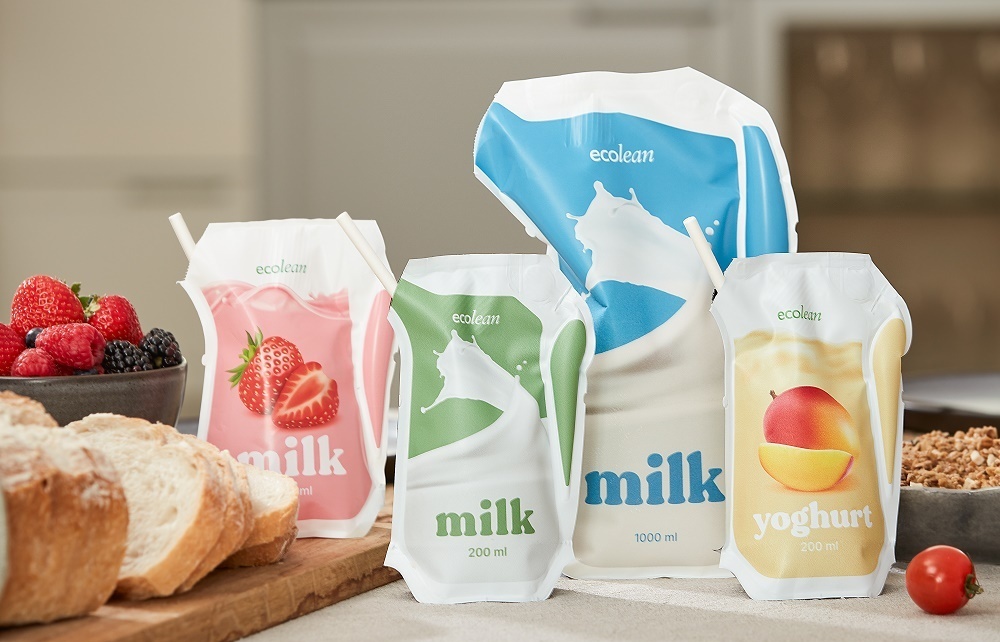Logistics sector is priming to deliver
 |
| E-commerce creates new demand for high-quality delivery services in Vietnam, Photo: Le Toan |
A flow of investment
In the beginning of 2018, JD.com announced its investment in Vietnamese e-commerce platform Tiki. Partnering with JD.com is expected to help Tiki optimise its logistics and delivery offerings.
Tran Ngoc Thai Son, founder and CEO of Tiki, said the firm had plans to develop fulfilment centres and delivery networks four years ago, when its capital was still limited. With the additional investment capital from JD.com – as well as other investors including VNG, FinUp Investment, STIC Investment, and Korea Investment Partners – Tiki will accelerate its development plan to meet the evolving needs of Vietnamese online shoppers.
JD.com claims to have built the fastest delivery system in the Chinese e-commerce world. Meanwhile, JD Logistics is one of the supply chain providers with the lowest costs in China.
To achieve these results, JD.com has made a long-term strategic investment in its logistics services; from warehousing to its technology platform, from procedures to its people. Tiki is joining forces with JD Logistics to develop their technology platform and procedures, as well as apply the latter’s know-how and experience to the Vietnamese e-commerce market, according to Son.
Meanwhile, Ninja Van has recently raised at least $87 million in funding. The raised fund will be used to support its technology platform and expansion plan in Vietnam.
Phan Xuan Dung, head representative of Ninja Van Vietnam, said that Vietnam stands as the top priority in Ninja Van’s expansion strategy. The main reason is the country’s promising e-commerce market and growing delivery needs.
“As per our estimation, Vietnam’s e-commerce volume will quickly increase to reach about 1 million parcels a day by 2020, ranking it second in the Southeast Asian market after Indonesia. Meanwhile, the number of e-commerce buyers in Vietnam will grow rapidly, expected to reach 42 million customers by 2021, as per eShopWorld’s research,” he said.
“We understand that both Vietnamese sellers and buyers have sophisticated demands for delivery services. We aim to improve our system and provide better visibility of parcels’ status to our clients,” he said, noting that an advanced, optimised algorithm will allow Ninja Van to reduce the pick-up and delivery lead time. That means sellers will be able to push out their parcels quicker, and buyers will be able to receive their orders sooner.
After two years in Vietnam, Ninja Van has completed the basic infrastructure to facilitate its delivery service. As of now, the firm has a delivery fleet with over 1,000 riders and drivers.
A gap in the market for better e-commerce logistics
Despite rising investment, the e-commerce logistics sector has yet to keep up with the increasing pace of online orders, especially in peak times. Thomas Harris, managing director of DHL eCommerce, said that Vietnam poses a few challenges such as traffic congestion and the higher logistical costs associated with rural areas or failed deliveries, which can all impact growth.
With the growth of online shopping, the volume of packages that need to be picked up, packed, and shipped expands exponentially. Logistics companies, therefore, need to deliver large volumes of packages quickly, sometimes even within a very specific or narrow delivery time window.
“Given the higher volume of e-commerce transactions now, logistics providers also need to manage a corresponding volume of returned, exchanged, and damaged goods. Coupled with bad addresses, rural areas, and failed delivery attempts, all these pose significant challenges for e-commerce logistics,” he added.
The latest survey by Vietnamese e-commerce platform Sendo pointed out that over 40 per cent of customers have made complaints about delivery speed as well as high delivery costs for their online shopping experience.
Nevertheless, despite a fledgling market, Dung from Ninja Van believes that e-commerce logistics in Vietnam will evolve, so that customers will be able to enjoy better delivery service. That means logistics providers will need to provide more reliability and shorter lead times. Ninja Van is planning to further optimise the pick-up and delivery route process and aims to decrease the lead time by 25 per cent.
Meanwhile, Tiki’s Son is upbeat about the outlook of Vietnam’s e-commerce logistics sector, which is expected to reach $250 million in 2018 and top $1.8 billion in 2025. Many delivery parties are set to boost capabilities to bridge the logistics gap in the market.
According to Son, the logistics companies operating in Vietnam’s e-commerce market are classified into three major groups. The first group is e-commerce logistics startups like Giaohangnhanh and Giaohangtietkiem. The second is the established logistics providers branching out into e-commerce, such as DHL eCommerce and Viettel Post. Last but not least is the logistics arms of e-commerce operators with additional capabilities to serve other online retailers, such as Lazada eLogistics under Lazada Vietnam.
What the stars mean:
★ Poor ★ ★ Promising ★★★ Good ★★★★ Very good ★★★★★ Exceptional
 Tag:
Tag:
Related Contents
Latest News
More News
- The Ministry of Finance commits to support Intel (April 04, 2025 | 16:11)
- Robust market could pull in fund appetites (April 04, 2025 | 15:52)
- Foreign direct investment off to stirring start in 2025 (April 04, 2025 | 15:44)
- Leaders vow to soothe FIE project headaches (April 04, 2025 | 15:10)
- Korean groups call for tax processes to be timely ironed out (April 04, 2025 | 15:01)
- Successful lifting of Long Thanh International Airport central terminal steel roof structure (April 04, 2025 | 12:00)
- Belgian royals attend inauguration of service-office complex in Quang Ninh (April 03, 2025 | 14:36)
- Foreign groups keen on smart manufacturing (April 02, 2025 | 14:46)
- Technology startups must deliver coherent value (April 02, 2025 | 14:41)
- Smart Chinese manufacturing forms a win-win collaboration (April 02, 2025 | 14:34)





















 Mobile Version
Mobile Version